Aussie TV boss stares down the Taliban
The Australian owner of Afghanistan’s television network can hardly believe it himself: a year after the Taliban rolled into Kabul, his TV station is still on air and reporting the news.
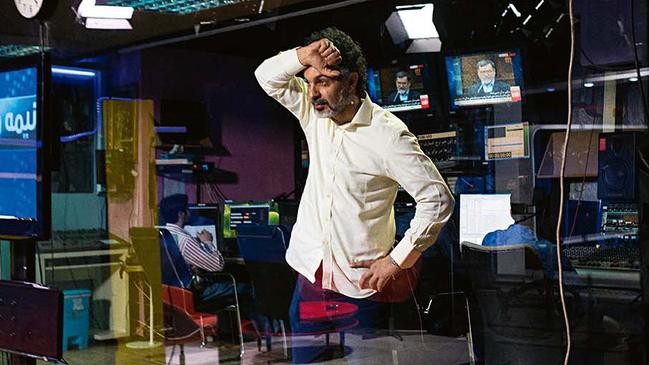
The Australian owner of Afghanistan’s television network can hardly believe it himself: a year after the Taliban rolled into Kabul his TV station is still on air and reporting the news.
Not fearlessly reporting, Melbourne-raised Saad Mohseni concedes: there’s plenty of fear. But the network’s courageous journalists, men and women, are out on the streets every day finding new ways to cover the big stories.
“We have this weird dance with the Taliban regime,” says Mohseni, chief executive and founder of TOLO TV, “but ultimately there’s no news that we have not covered.
“We do it with a great deal of trepidation and nervousness but nonetheless, whether it’s talking about fighting inside the country or extrajudicial killing of former government officials, we cover it.”
A few days ago, one of TOLO’s female journalists reported on a small group of Islamic scholars who’d suggested that girls should be allowed to attend school.
The Taliban might have been seething, but how could they object? The reporter was quoting respected Islamic scholars.
The dance doesn’t always end happily. TOLO’s reporters have been threatened, beaten, locked up, their offices raided for pushing their new rulers too far.
“To the Taliban we are a pain in the arse, they don’t like us, they’ve never liked us,” Mohseni says. “We represent something that is alien to them but they’ve tolerated us to an extent because people view us as the canary in the coal mine and the Taliban realise if they shut the media down, the rest of the world will say – that’s it.”
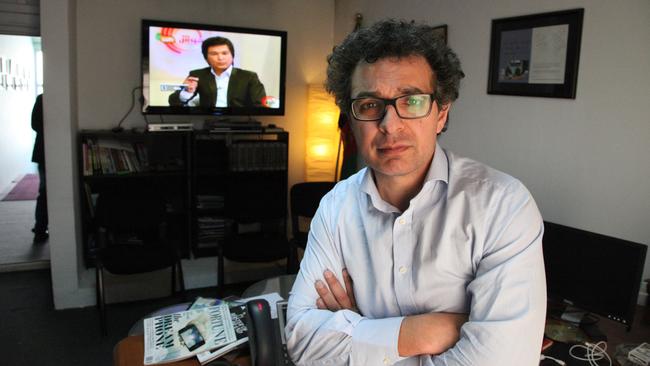
The peripatetic Mohseni is in London when The Australian calls. The 56-year-old media mogul was out of Afghanistan on business when the Taliban poured into Kabul exactly a year ago, on August 15, 2021. He hasn’t been back since.
“I’ve made a conscious decision not to go back – not for security reasons, but for the optics, because if I go there I’ll have to meet with the Taliban and then there’s a lot of explaining to do – why are you meeting them? – and getting dragged into the political debates.”
Mohseni grew up in Australia, the son of an Afghan diplomat who sought asylum in Australia when the Taliban came to power. Twenty years ago he arrived back in an Afghanistan newly liberated from the Taliban, determined to introduce ordinary Afghans to the world through the power of television. He created news programs, game shows, soap operas, cop dramas and a cheesy talent show, Afghan Star, that 12 million people tuned in to every night.
Now the Taliban are back and television looks very different.
The feisty political discussion shows are gone and the soap operas have been cancelled. Afghan Star was halted by Covid in 2020 and has not returned. A few reality TV and game shows survive.
There’s also content created outside Afghanistan, including music shows and soap operas, available to those with satellite and internet access.
TOLO lost up to 90 per cent of its staff after Kabul fell. The network had long been in the Taliban’s sights, its journalists designated as military targets “due to their disrespectful and hostile actions towards the Afghan Mujahid nation”.
Many fled the country, among them Beheshta Arghand, the female journalist who bravely grilled Taliban leader Mawlawi Abdulhaq Hemad two days after the group took back the city, about house-to-house searches for officials who had worked for the former government.
No Afghan woman had ever interviewed a Taliban leader inside the country before.
“I controlled my feelings and my body language,” Arghand told The Australian after the interview. But just weeks later Arghand fled the country and is now believed to be in a refugee camp in Albania.
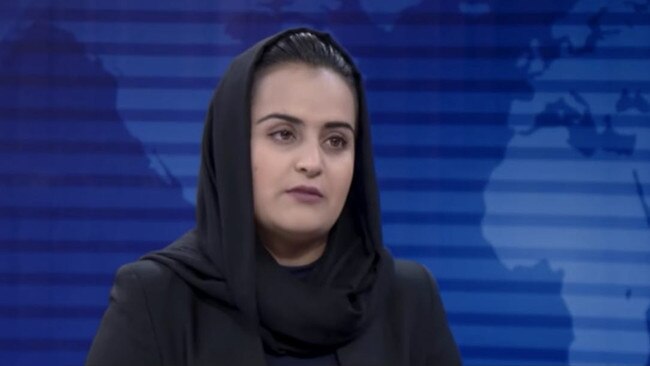
Women are now forced to cover their faces on television, many opting to wear surgical masks.
But TOLO TV today has more female journalists than before the Taliban took over, jumping from eight women then to 21 now.
“We’ve done it consciously, it’s been a policy decision to recruit and employ more women,” Mohseni says.
In the meantime, he’s trying to find a way to keep paying the bills. Mohseni is a businessman and his Afghan operation is bleeding money.
“We’ve had to reduce our costs significantly but still we’re burning cash. There was some residual business when the government collapsed, we still had contracts for advertising for two or three months, but the last four or five months have been very painful.”
Mohseni says he’s determined to keep the network alive; he just needs to keep navigating that precarious dance with the country’s belligerent new masters.
“It’s as if you’re dealing with a bunch of Martians who’ve invaded the planet – there’s a disconnect in what we’re thinking and what they’re thinking,” he says. “But we’re trying to manage it the best way we can.”


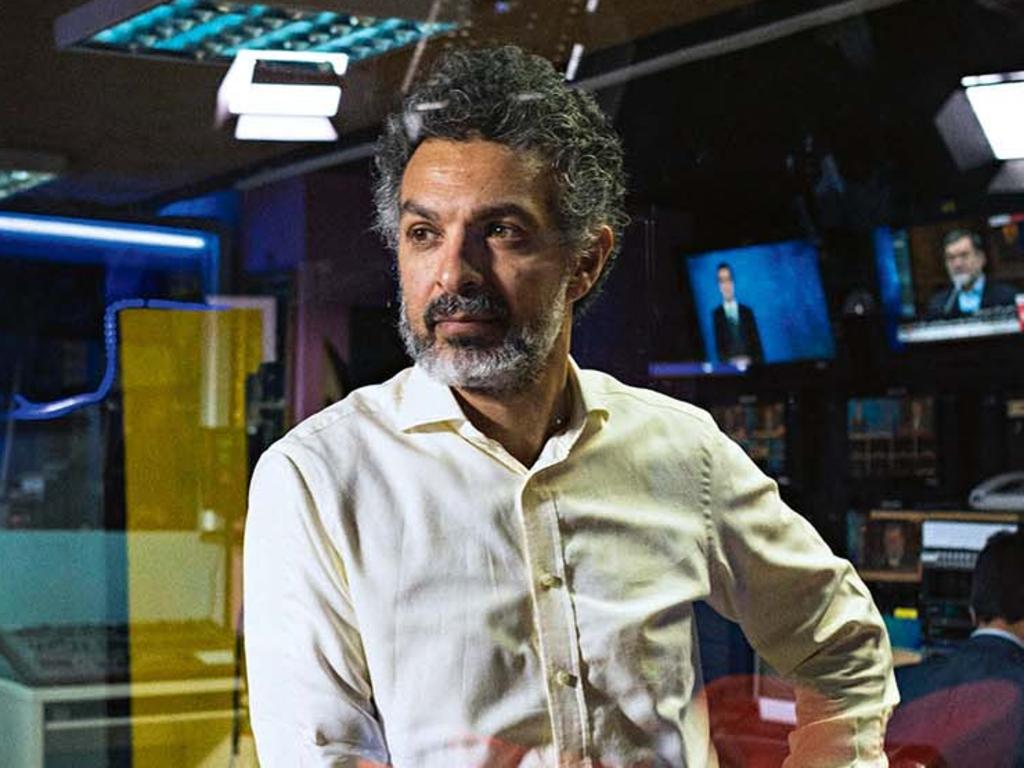
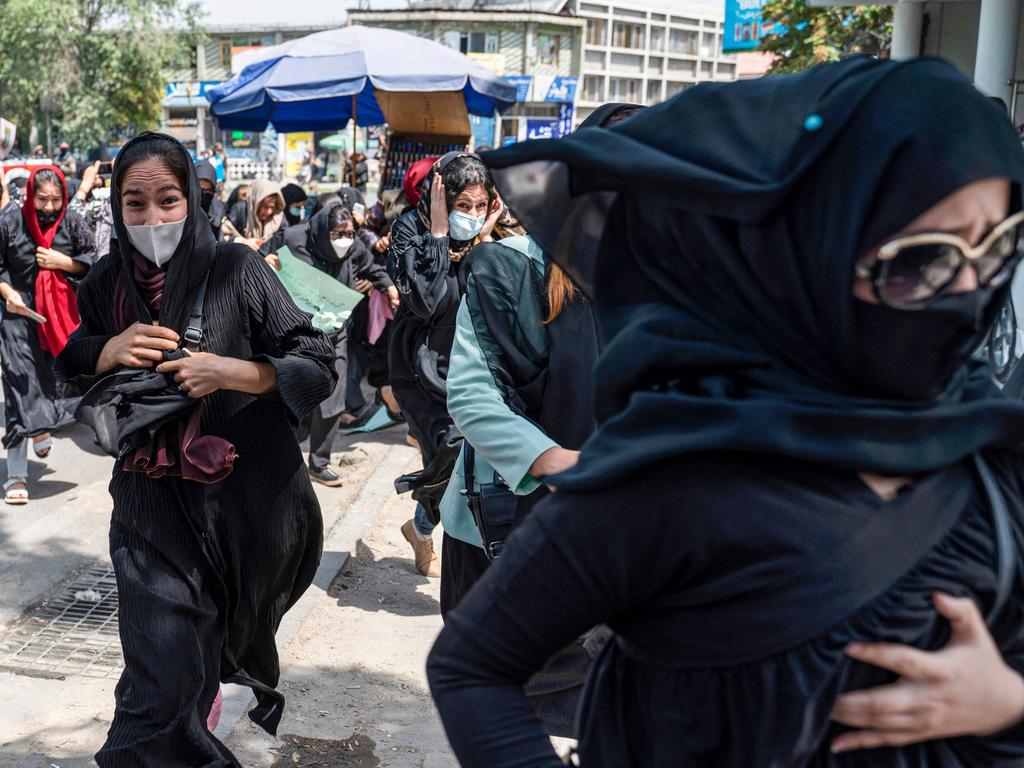




To join the conversation, please log in. Don't have an account? Register
Join the conversation, you are commenting as Logout